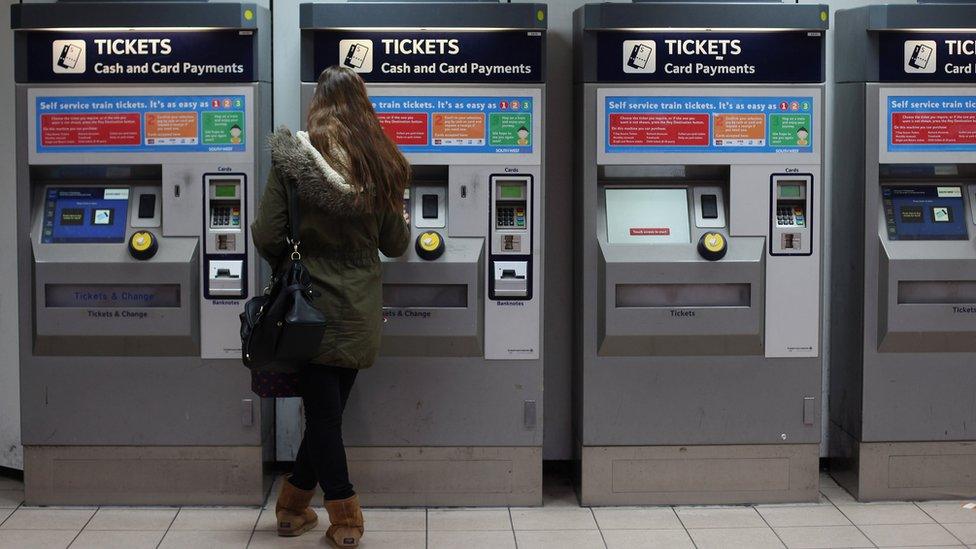General election 2017: Labour says it would cut rail fare rises
- Published
- comments

Labour is promising to save money for rail commuters by changing the way fare increases are calculated.
The party says the move would save an average rail season ticket holder £349 a year by 2022.
It said the change could be funded by the "absolute fortune" saved by bringing the railways back into public ownership.
But the Tories said nationalisation would add billions to the UK's debt or lead to an increase in taxes.
"It's yet more economic shambles from Labour," a spokesman said.
Labour's plan for ticket prices would apply to regulated fares, which account for about 40% of all fares, including most season tickets.
These are currently capped at the retail price index (RPI) measure of inflation, and Labour says it instead use the lower consumer price index (CPI) rate.
Its pledge would apply in England, as the setting of regulated fares is devolved.
Shadow transport secretary Andy McDonald told BBC Breakfast the "very significant difference" between the two measures would have a "huge impact".
Once the network returned to public ownership, Labour would "start exploring a reduction in fares", he said.
Paul Plummer, chief executive of the Rail Delivery Group, representing train operators, said politicians had to decide on the balance between taxpayers and passengers funding the railways.
He defended the current franchising model, saying it had led to a £2.2bn improvement in rail finances.
The Conservative are promising what they call the "largest investment in railways since Victorian times", focusing on increasing capacity on key routes.